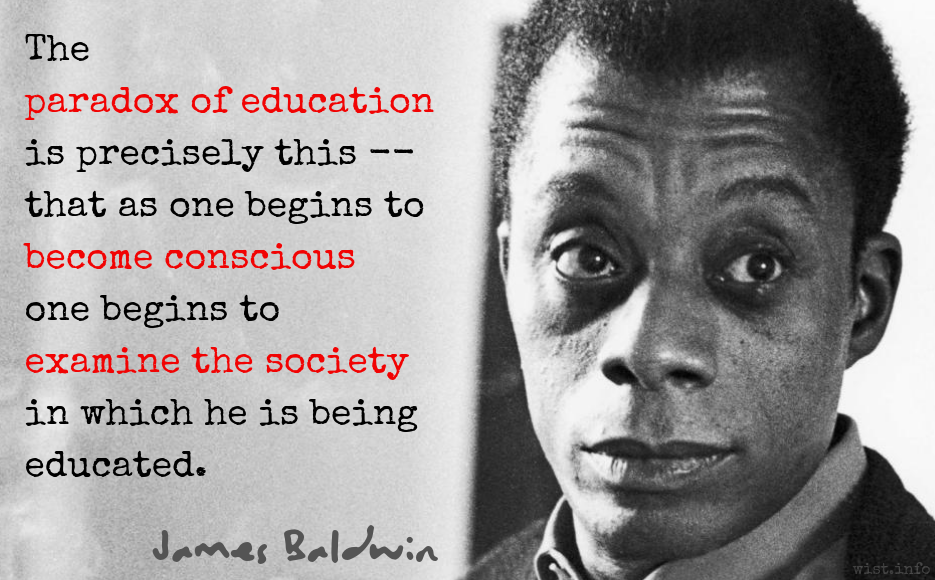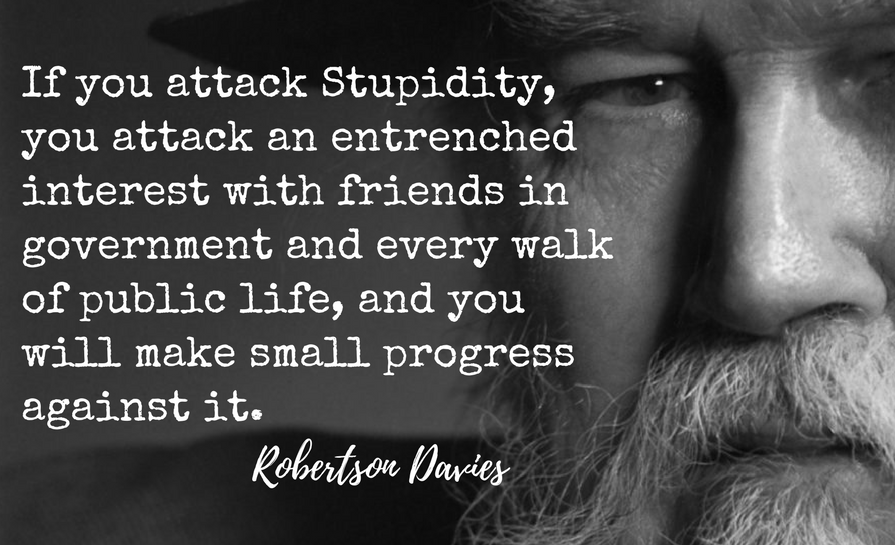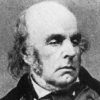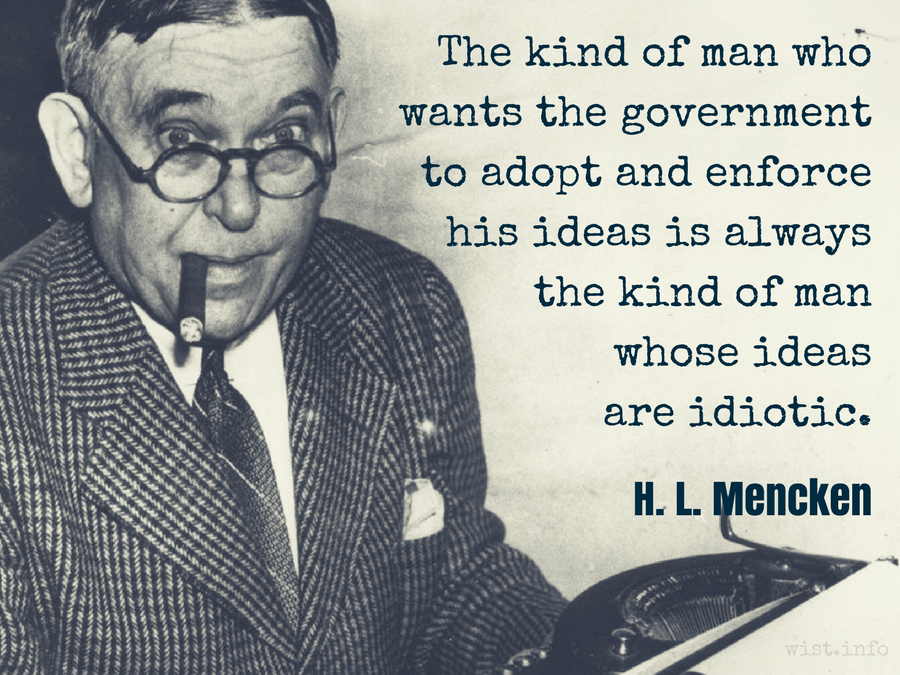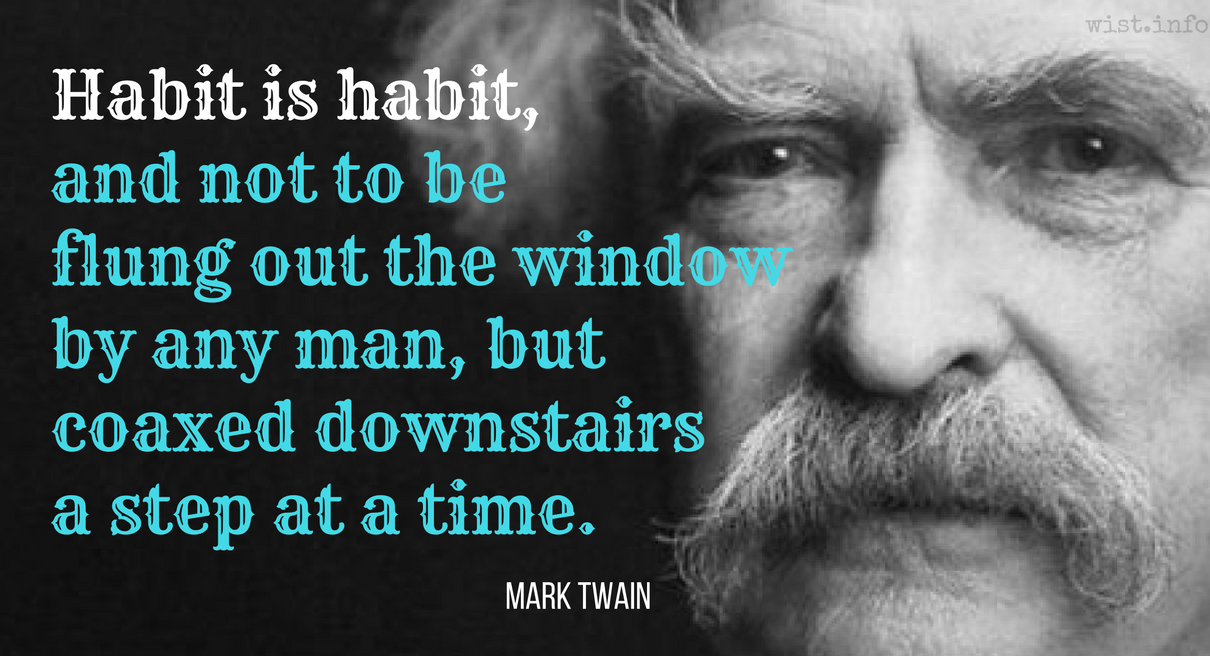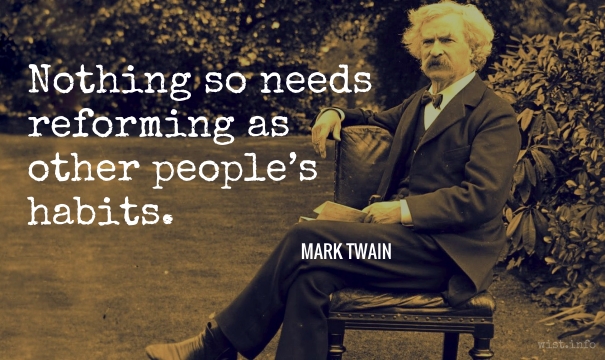But in the days that are now passing over us, even fools are arrested to ask the meaning of them; few of the generations of men have seen more impressive days. Days of endless calamity, disruption, dislocation, confusion worse confounded: if they are not days of endless hope too, then they are days of utter despair. For it is not a small hope that will suffice, the ruin being clearly, either in action or in prospect, universal. There must be a new world, if there is to be any world at all!
Thomas Carlyle (1795-1881) Scottish essayist and historian
Latter-Day Pamphlets, # 1 “The Present Time” (1850-02-01)
(Source)
Quotations about:
reform
Note not all quotations have been tagged, so Search may find additional quotes on this topic.
My days of love are over; me no more
The charms of maid, wife, and still less of widow,
Can make the fool of which they made before, —
In short, I must not lead the life I did do;
The credulous hope of mutual minds is o’er,
The copious use of claret is forbid too,
So for a good old-gentlemanly vice,
I think I must take up with avarice.
Misbehavior and punishment are not opposites that cancel each other; on the contrary, they breed and reinforce each other. Punishment does not deter misconduct. It makes the offender more skillful in escaping detection. When children are punished they resolve to be more careful, not more obedient or responsible.
Haim Ginott (1922-1973) Israeli-American school teacher, child psychologist, psychotherapist [b. Haim Ginzburg]
Between Parent and Child: Revised and Updated Edition, ch. 5 “Discipline” (2003 ed.) [with A. Ginott and H. W. Goddard]
(Source)
In France they ignore those who set fires and punish those who give the alarm.
[En France, on laisse en repos ceux qui mettent le feu, et on persécute ceux qui sonnent le tocsin.]
Nicolas Chamfort (1741-1794) French writer, epigrammist (b. Nicolas-Sébastien Roch)
Products of Perfected Civilization [Produits de la Civilisation Perfectionée], Part 1 “Maxims and Thoughts [Maximes et Pensées],” ch. 8, ¶ 500 (1795) [tr. Merwin (1969)]
(Source)
Likely true for more than just France, especially as Chamfort was referring to political leadership.
The source for this fragment seems to be from a political incident. After the exile of Calonne in April 1787, after proposing a number of social reforms, Chamfort noted, "They ignored him when he started the fire, but punished him when he sounded the alarm." [tr. Dusinberre (1992), ¶ 499]. When collected as his "Thoughts," it was made more general.
(Source (French), ¶ 500). Alternate translations:
In France we leave unmolested those who set fire to the house and persecute those who sound the alarm bell.
[tr. Hutchinson (1902)]
In France we harry the man who rings the alarum bell, and leave the man in peace who starts the fire.
[tr. Mathers (1926)]
In France, those who commit arson are left in peace, and those who sound the alarm are persecuted.
[tr. Pearson (1973)]
In France, we leave arsonists in peace and persecute those who sound the alarm.
[tr. Parmée (2003), ¶ 257]
In France, people leave alone the person who started the fire and persecute the one who rings the bell.
[tr. Sinicalchi, ¶ 499]
I was held back by mere trifles, the most paltry inanities, all my old attachments. They plucked at my garment of flesh and whispered, “Are you going to dismiss us? From this moment we shall never be with you again, for ever and ever. From this moment you will never again be allowed to do this thing or that, for evermore.” What was it, my God, that they meant when they whispered “this thing or that?” Things so sordid and so shameful that I beg you in your mercy to keep the soul of your servant free from them!
[Retinebant nugae nugarum et vanitates vanitantium, antiquae amicae meae, et succutiebant vestem meam carneam et submurmurabant, “dimittisne nos?” et “a momento isto non erimus tecum ultra in aeternum” et “a momento isto non tibi licebit hoc et illud ultra in aeternum.” et quae suggerebant in eo quod dixi “hoc et illud,” quae suggerebant, deus meus, avertat ab anima servi tui misericordia tua! Quas sordes suggerebant, quae dedecora!]
Augustine of Hippo (354-430) Christian church father, philosopher, saint [b. Aurelius Augustinus]
Confessions, Book 8, ch. 11 / ¶ 26 (8.11.26) (c. AD 398) [tr. Pine-Coffin (1961)]
(Source)
(Source (Latin)). Alternate translations:
The very toys of toys, and vanities of vanities, my ancient mistresses, still held me; they plucked my fleshy garment, and whispered softly, "Dost thou cast us off? and from that moment shall we no more be with thee for ever? and from that moment shall not this or that be lawful for thee for ever?" And what was it which they suggested in that I said, "this or that," what did they suggest, O my God? Let Thy mercy turn it away from the soul of Thy servant. What defilements did they suggest! what shame!
[tr. Pusey (1838)]
The very toys of toys, and vanities of vanities, my old mistresses, still enthralled me; they shook my fleshly garment, and whispered softly, “Dost thou part with us? And from that moment shall we no more be with thee for ever? And from that moment shall not this or that be lawful for thee for ever?” And what did they suggest to me in the words “this or that?” What is it that they suggested, O my God? Let Thy mercy avert it from the soul of Thy servant. What impurities did they suggest! What shame!
[tr. Pilkington (1876)]
Toys of toys and vanities of vanities, my old loves held me back, and made my fleshly garment quiver whispering softly, “Dost thou leave us? and from that moment shall we never be with thee any more? And from this moment will not this and that be allowed thee for ever?” And what did they suggest in that which I call "this or that"? what did they suggest, my God ? Let Thy Mercy turn it away from the soul of Thy servant! What defilements did they suggest! what shameful things!
[tr. Hutchings (1890)]
Trifles of trifles and vanities of vanities, my old mistresses, held me back; they caught hold of the garment of my flesh and whispered in my ear, "Can you let us go? and from that instant we shall see you no more for ever; and from that instant this and that will be forbidden you for ever.” What did they mean, O m God, what did they mean by "this and that?" O let Thy mercy guard the soul of Thy servant from the vileness, the shame that they meant!
[tr. Bigg (1897), 8.11.2]
Those trifles of all trifles, and vanities of vanities, my one-time mistresses, held me back, plucking at my garment of flesh and murmuring softly: “Are you sending us away?” And “From this moment shall we not be with you, now or forever?” And “From this moment shall this or that not be allowed you, now or forever?” What were they suggesting to me in the phrase I have written “this or that,” what were they suggesting to me, O my God? Do you in your mercy keep from the soul of Your servant the vileness and uncleanness they were suggesting.
[tr. Sheed (1943)]
It was, in fact, my old mistresses, trifles of trifles and vanities of vanities, who still enthralled me. They tugged at my fleshly garments and softly whispered: “Are you going to part with us? And from that moment will we never be with you any more? And from that moment will not this and that be forbidden you forever?” What were they suggesting to me in those words “this or that”? What is it they suggested, O my God? Let thy mercy guard the soul of thy servant from the vileness and the shame they did suggest!
[tr. Outler (1955)]
My lovers of old, trifles of trifles and vanities of vanities held me back. They plucked at my fleshly garment, and they whispered softly: “Do you cast us off?” and “From that moment we shall no more be with you forever and ever!” and again, “From that moment no longer will this thing and that be allowed to you, forever and ever!” What did they suggest by what I have called “this thing and that,” what, O my God, did they suggest? May your mercy turn away all that from your servant’s soul! What filth did they suggest! What deeds of shame!
[tr. Ryan (1960)]
Toys and trifles, utter vanities had been my mistresses, and now they were holding me back, pulling me by the garment of my flesh and softly murmuring in my ear: “Are you getting rid of us?” and “From this moment shall we never be with you again for all eternity?” and “From this moment will you never for all eternity be allowed to do this or to do that?” My God, what was it, what was it that they suggested in those words “this” or “that” which I have just written? I pray you in your mercy to keep such things from the soul of your servant. How filthy, how shameful were these things they were suggesting!
[tr. Warner (1963)]
The trifles of trifles, the worthless amid the worthless, past objects of my affections, were what was holding me, pulling at the garment of my flesh and whispering: "Are you sending us away? From this moment we shall not be with you for eternity? And from this moment you will not be permitted to do this and that for ever?" And what did they suggest by my "this and that", my God? Let your mercy turn it away from your servant’s soul. What impurities, what acts of shame they suggested.
[tr. Blaiklock (1983)]
We want perfection in other people, and yet we do not put right our own failings. We want to see others firmly corrected, but we refuse correction ourselves. We take offence when permission is given to others, but we do not want our own requests refused. We want rules to check the activities of others, but we are indignant at restrictions on ourselves.
[Libenter videmus alios perfectos, sed tamen proprios non emendamus defectus. Volumus quod alii districte corrigantur, et nos ipsi corrigi nolumus, aut negari quod petimus. Alios restringi per statuta volumus, et ipsi nullatenus patimur amplius cohiberi.]
Thomas à Kempis (c. 1380-1471) German-Dutch priest, author
The Imitation of Christ [De Imitatione Christi], Book 1, ch. 16, v. 2ff (1.16.2-3) (c. 1418-27) [tr. Knott (1962)]
(Source)
(Source (Latin)). Alternate translations:
We would gladly have others perfect, but will not amend our own defaults. We would that others should be straitly corrected for their offences, but we will not be corrected. It misliketh us that others have liberty, but we will not be denied of that we ask. We would also that others should be restrained according to the statutes, but we in nowise will be restrained.
[tr. Whitford/Raynal (1530/1871)]
We would gladly have others perfect, yet we will not amend our own faults. We desire others to be strictly corrected for their offenses, yet we will not be corrected. We dislike it that others have liberty, yet we will not be denied what we ask. We desire that others should be restrained according to the laws, yet we will in no way be restrained.
[tr. Whitford/Gardiner (1530/1955)]
It is injustice to expect that in another which thou hast not in thy self, to looke for perfection in others, and yet not to amend imperfections in our selves. We will have others severely punisht, and will not amend our selves; the large liberty of others disliketh us, and yet we will not have our desires deni'd us, we will have rigorous Lawes imposed upon others, but in no sort will we our selves be restrained.
[tr. Page (1639), 1.16.8-9]
And, indeed, nothing is more common, than to express exceeding Zeal in amending our Neighbours, and mighty Indignation against Their Vices or Imperfections, while at the same time we neglect the beginning at Home, and either quite overlook, or seem highly contented with our own. We set up for Reformers, declaim at the Wickendess of the Age, and are all for suppressing and punishing it by vigorous Laws; and yet are unwilling that any Check or Restraint should be put upon our own Freedoms.
[tr. Stanhope (1696; 1706 ed.)]
But we require perfection in the rest of mankind, and take no care to rectify the disorders of our own heart; we desire that the faults of others should be severely punished, and refuse the gentlest correction ourselves; we are offended at their licentiousness, and yet cannot bear the least opposition to our own immoderate desires. We would subject all to the control of rigorous statute and penal laws, but will not suffer any restraint upon our own actions.
[tr. Payne (1803), 1.16.3]
We would willingly have others perfect, and yet we amend not our own faults. We will have others severely corrected, and will not be corrected ourselves. The large liberty of others displeaseth us; and yet we will not have our own desires denied us. We will have others kept under by strict laws; but in no sort will ourselves be restrained.
[ed. Parker (1841)]
We willingly require perfection in the rest of mankind, and yet do not rectify the disorders of our own hearts. We desire that the faults of others should be severely punished, and refuse the gentlest correction ourselves. We are offended at their licentiousness, and yet cannot bear the least denial of our own immoderate desires. We would subject all to the control of rigorous statutes, but suffer no restraint upon our own action.
[tr. Dibdin (1851)]
We would fain have others perfect, and yet we amend not our own defects. We would have others strictly corrected, but will not be corrected ourselves. The large liberty of others displeases us, and yet we would not be denied anything we ask for. We wish others to be bound down by laws, and we suffer ourselves to be in no sort restrained.
[ed. Bagster (1860)]
We are ready to see others made perfect, and yet we do not amend our own shortcomings. We will that others be straitly corrected, but we will not be corrected ourselves. The freedom of others displeaseth us, but we are dissatisfied that our own wishes shall be denied us. We desire rules to be made restraining others, but by no means will we suffer ourselves to be restrained.
[tr. Benham (1874)]
We are desirous to have others perfect, and yet we amend not our own faults. We will have others severely corrected, and will not be corrected ourselves. The large liberty of others displeaseth us; and yet we will not have our own desires denied us. We will have others kept under by strict laws; but in no sort will we ourselves be restrained.
[tr. Anon. (1901)]
We want them to be perfect, yet we do not correct our own faults. We wish them to be severely corrected, yet we will not correct ourselves. Their great liberty displeases us, yet we would not be denied what we ask. We would have them bound by laws, yet we will allow ourselves to be restrained in nothing.
[tr. Croft/Bolton (1940)]
We would readily have others perfect and yet not amend our own defects. We want others rigidly corrected and are unwilling to be corrected ourselves. The wide freedom of others displeases us, and yet we would not be denied whatever we ask. We wish others to be bound by rules, and will ourselves in no way be held in.
[tr. Daplyn (1952)]
For we require other people to be perfect, but do not correct our own faults. We wish to see others severely reprimanded; yet we are unwilling to be corrected ourselves. We wish to restrict the liberty of others, but are not willing to be denied anything ourselves. We wish others to be bound by rules, yet we will not let ourselves be bound.
[tr. Sherley-Price (1952)]
We like to have everybody around us quite perfect, but our own faults -- we never seem to correct them. Tom, Dick and Harry must be strictly called to order, but we aren't fond of being called to order ourselves. It is always the other man that has too much rope given him -- our wishes must not be thwarted; rules for everybody else, but our own liberties must not be abridged for a moment.
[tr. Knox-Oakley (1959), 1.16.3]
Though quick to expect perfection in others, we take little care to correct our own shortcomings. We wouidl have others strictly corrected, but not ourselves. The wide freedom of others displeases us, yet we wish to be denied nothing that we ourselves desire. We would have others under the restraint of the rule while unwilling ourselves to be under any sort of restraint.
[tr. Rooney (1979)]
We would willingly have others be perfect, and yet we fail to correct our own faults. We want others to be strictly corrected, and yet we are unwilling to be corrected ourselves. Other peoples' far-ranging freedom annoys us, and yet we insist on having our own way. We wish others to be tied down by rules, and yet we will not allow ourselves to be held in check in any way at all.
[tr. Creasy (1989)]
I haven’t got the slightest idea how to change people, but still I keep a long list of prospective candidates just in case I should ever figure it out.
David Sedaris (b. 1956) American humorist, comedian, author
Naked, “Something for Everyone” (1997)
(Source)
Even if there were only two men left in the world and both of them saints they wouldn’t be happy. One of them would be bound to try and improve the other. That is the nature of things.
Frank O'Connor (1903-1966) Irish author and translator [pseud. of Michael O'Donovan]
“Song Without Words” (1951)
(Source)
Opening words. First printed in Argosy (1951-12).
We are willing to acknowledge our shortcomings, we are willing to be punished for them, we will patiently suffer much on their account, but we become impatient if we are required to overcome them.
[Man läßt sich seine Mängel vorhalten, man läßt sich strafen, man leidet manches um ihrer willen mid Geduld; aber ungeduldig wird man, wenn man sie ablegen soll.]
Johann Wolfgang von Goethe (1749-1832) German poet, statesman, scientist
Elective Affinities [Die Wahlverwandtschaften], Part 2, ch. 5, “From Ottilie’s Journal [Aus Ottiliens Tagebuche]” (1809) [tr. Hollingdale (1971)]
(Source)
(Source (German)). Alternate translation:
People will allow their faults to be shown them; they will let themselves be punished for them; they will patiently endure many things because of them; they only become impatient when they have to lay them aside.
[Niles ed. (1872)]
There is, perhaps, no surer mark of folly, than an attempt to correct the natural infirmities of those we love. The finest composition of human nature, as well as the finest china, may have a flaw in it; and this, I am afraid, in either case, is equally incurable; though, nevertheless, the pattern may remain of the highest value.
Henry Fielding (1707-1754) English novelist, dramatist, satirist
The History of Tom Jones, a Foundling, Book 2, ch. 7 (1749)
(Source)
Whenever you take a step forward you are bound to disturb something. You disturb the air as you go forward, you disturb the dust, the ground. You trample upon things. When a whole society moves forward this trampling is on a much bigger scale and each thing that you disturb, each vested interest which you want to remove, stands as an obstacle.
Indira Gandhi (1917-1984) Indian politician
“Poverty: India’s Vital Problem,” speech, Madras University (Jan 1967)
(Source)
The allotted function of art is not, as is often assumed, to put across ideas, to propagate thoughts, to serve as an example. The aim of art is to prepare a person for death, to plough and harrow his soul, rendering it capable of turning to good.
Andrei Tarkovsky (1932-1986) Russian film director, screenwriter, film theorist [Андрей Арсеньевич Тарковский]
Sculpting in Time (1986) [tr. Hunter-Blair]
(Source)
I’d be more willing to accept religion, even though I don’t believe in it, if I thought it made people nicer to each other, but I don’t think it does.
Andy Rooney (1919-2011) American journalist, commentator, author
Sincerely, Andy Rooney, Part 15 “Faith in Reason” (1999)
(Source)
From a 1989 letter he wrote to his children about religion.
Who, pray, are benefiting by all this waste and confusion? The dew, a mere small percentage of the population of the world. All the remainder submit, because they think “it always has been so and it must always be so.” The work of those who have a conception of a true society of the future, must devote all their efforts towards disabusing the people’s minds of the ancient false hoods. It can be done. Many other hoary lies have passed away, so will this one, too.
Lucy Parsons (1851-1942) American labor organizer, anarchist, orator [a.k.a. Lucy Gonzalez]
“Property Rights vs. Human Rights,” The Liberator (22 Nov 1905)
(Source)
You can’t go back and change the beginning, but you can start where you are and change the ending.
C. S. Lewis (1898-1963) English writer, literary scholar, lay theologian [Clive Staples Lewis]
(Spurious)
Not found in Lewis' writings, and not considered authentic. There is some similarity to this Lewis quotation. More discussion here:
Progress means getting nearer to the place where you want to be. And if you have taken a wrong turning, then to go forward does not get you any nearer. If you are on the wrong road, progress means doing an about-turn and walking back to the right road; and in that case, the man who turns back soonest is the most progressive.
C. S. Lewis (1898-1963) English writer, literary scholar, lay theologian [Clive Staples Lewis]
Mere Christianity, Book 1, ch. 5 “We Have Cause to be Uneasy” (1952)
(Source)
Originally broadcast on BBC Radio (27 Aug 1941) under the title "What Can We Do About It?" Reprinted first in Broadcast Talks (1943) (US title The Case for Christianity (1944)).
Never be deceived that the rich will allow you to vote away their wealth.
Lucy Parsons (1851-1942) American labor organizer, anarchist, orator [a.k.a. Lucy Gonzalez]
Speech, Founding Convention of the Industrial Workers of the World (27 Jun 1905)
(Source)
Reprinted in Freedom, Equality and Solidarity: Writings & Speeches, 1878-1937.
Contumely always falls upon those who break through some custom or convention. Such men, in fact, are called criminals. Everyone who overthrows an existing law is, at the start, regarded as a wicket man. Long afterward, when it is found that this law was bad and so cannot be re-established, the epithet is changed. All history treats almost exclusively of wicked men who, in the course of time, have come to be looked upon as good men. All progress is the result of successful crimes.
Friedrich Nietzsche (1844-1900) German philosopher and poet
The Dawn [Morgenröte], sec. 20 (1881) [Mencken (1907)]
(Source)
Alternate translations:
We have to make good a great deal of the contumely which has fallen on all those who, by their actions, have broken through the conventionality of some custom -- such people generally have been called criminals. Everybody who overthrew the existing moral law has hitherto, at least in the beginning, been considered a wicked man; but when afterwards, as sometimes happened, the old law could not be re-established and had to be abandoned, the epithet was gradually changed. History almost exclusively treats of such wicked men who, in the course of time, have been declared good men.
[tr. Volz (1903)]
One has to take back much of the defamation which people have cast upon all those who broke through the spell of a custom by means of a deed -- in general, they are called criminals. Whoever has overthrown an existing law of custom has hitherto always first been accounted a bad man: but when, as did happen the laws could not afterwards be reinstated and this fact was accepted, the predicate gradually changed -- history treats almost exclusively of these bad men who subsequently became good men!
[tr. Hollingdale (1997)]
I am the world’s original gradualist. I just think ninety-odd years is gradual enough.
Thurgood Marshall (1908-1993) American lawyer, US Supreme Court Justice (1967-1991)
Quoted in I. F. Stone’s Weekly (19 May 1958)
(Source)
In response to Eisenhower's speech to the National Newspaper Publishers Association, where the President called for "patience and forbearance" on civil rights reform.
Also that year, during the effort by Autherine Lucy to be admitted to the segregated University of Alabama, Marshall similarly quipped, "Maybe you can't override prejudice overnight, but the Emancipation Proclamation was issued in 1864, ninety-odd years ago. I believe in gradualism, and I also believe that ninety-odd years is pretty gradual."
The church has stood, a rock colossus of bigotry, in the path of ten thousand proposed reforms. Sane efforts to legalize birth control information, the manufacture of proper birth control appliances, appliances for the inhibition of the spread of venereal disease, public instruction in sex hygiene, free clinics for the treatment of venereal disease, the inspection and treatment of prostitutes, controlled prostitution itself, the publication of psychological and physical sex information, aid for unwed mothers –myriad attempts by sane men acting sanely on real problems -— have been fought down by church-frightened legislatures and church-dominated courts.
It is not sufficient that the state of affairs which we seek to promote should be better than the state of affairs which preceded it; it must be sufficiently better to make up for the evils of the transition.
John Maynard Keynes (1883-1946) English economist
“The Political Doctrines of Edmund Burke” (1904)
(Source)
Only in growth, reform, and change, paradoxically enough, is true security to be found.
Nobody but radicals have ever accomplished anything in a great crisis. Conservatives have their place in the piping times of peace; but in emergencies only rugged issue men amount to much.
James A. Garfield (1831-1881) US President (1881), lawyer, lay preacher, educator
Diary (1876)
(Source)
I am trying to do two things: dare to be a radical and not be a fool, which, if I may judge by the exhibitions around me, is a matter of no small difficulty.
James A. Garfield (1831-1881) US President (1881), lawyer, lay preacher, educator
Letter to Burke Aaron Hinsdale (1 Jan 1867)
(Source)
American capitalism is predatory, and American politics are corrupt: The same thing is true in England and the same in France; but in all these three countries the dominating fact is that whenever the people get ready to change the government, they can change it.
Upton Sinclair (1878-1968) American writer, journalist, activist, politician
Letter to John Reed (22 Oct 1918)
(Source)
The art of holding onto power is the American system’s special grace. The trick is to make reform seem so tantalizingly close as to dull the edge of militancy and force the purest revolutionaries into the peripheries of political action.
Andrew Kopkind (1935-1994) American journalist
“Are We in the Middle of a Revolution?” New York Times Magazine (10 Nov 1968)
(Source)
Forasmuch as the feast of the nativity of Christ, Easter, Whitsuntide, and other festivals, commonly called holy-days, have been heretofore superstitiously used and observed; be it ordained, that the said feasts, and all other festivals, commonly called holy-days, be no longer observed as festivals; any law, statute, custom, constitution, or canon, to the contrary in anywise not withstanding.
(Other Authors and Sources)
Puritan law passed in the British Parliament (8 Jun 1647)
(Source)
Quoted in Daniel Neal, The History of the Puritans, Vol. 2 (1837).
Abuse is a proof that you are felt. If they praise you, you will work no revolution.
Right actions for the future are the best apologies for wrong ones in the past — the best evidence of regret for them that we can offer, or the world receive.
Tryon Edwards (1809-1894) American theologian, writer, lexicographer
A Dictionary of Thoughts (1908)
(Source)
Often wrongly quoted, "... best apologies for bad actions in the past."
I’d be the first to say that some historical victories have been won by violence; the U.S. Revolution is certainly one of the foremost. But the Negro revolution is seeking integration, not independence. Those fighting for independence have the purpose to drive out the oppressors. But here in America, we’ve got to live together. We’ve got to find a way to reconcile ourselves to living in community, one group with the other. The struggle of the Negro in America, to be successful, must be waged with resolute efforts, but efforts that are kept strictly within the framework of our democratic society. This means reaching, educating and moving large enough groups of people of both races to stir the conscience of the nation.
Martin Luther King, Jr. (1929-1968) American clergyman, civil rights leader, social activist, preacher
Playboy interview (Jan 1965)
(Source)
The paradox of education is precisely this — that as one begins to become conscious one begins to examine the society in which he is being educated. The purpose of education, finally, is to create in a person the ability to look at the world for himself, to make his own decisions, to say to himself this is black or this is white, to decide for himself whether there is a God in heaven or not. To ask questions of the universe, and then learn to live with those questions, is the way he achieves his own identity. But no society is really anxious to have that kind of person around. What societies really, ideally, want is a citizenry which will simply obey the rules of society. If a society succeeds in this, that society is about to perish. The obligation of anyone who thinks of himself as responsible is to examine society and try to change it and to fight it -– at no matter what risk. This is the only hope society has. This is the only way societies change.
James Baldwin (1924-1987) American novelist, playwright, activist
“The Negro Child — His Self-Image,” speech (16 Oct 1963)
(Source)
Speech to educators, first published as "A Talk to Teachers," The Saturday Review (21 Dec 1963). The thesis above is restatated at the end in these words, more frequently quoted: "I began by saying that one of the paradoxes of education was that precisely at the point when you begin to develop a conscience, you must find yourself at war with your society. It is your responsibility to change society if you think of yourself as an educated person."
If you attack Stupidity, you attack an entrenched interest with friends in government and every walk of public life, and you will make small progress against it.
Robertson Davies (1913-1995) Canadian author, editor, publisher
The Table Talk of Samuel Marchbanks (1949)
(Source)
You’ve got to rattle your cage door. You’ve got to let them know that you’re in there, and that you want out. Make noise. Cause trouble. You may not win right away, but you’ll sure have a lot more fun.
Florynce "Flo" Kennedy (1916-2000) American lawyer, feminist, civil rights activist
(Attributed)
(Source)
Quoted in Gloria Steinem, "The Verbal Karate of Florynce R. Kennedy, Esq.," Ms. (Mar 1973).
Leave well — even “pretty well” — alone: that is what I learn as I get old.
Edward FitzGerald (1809-1883) English writer, poet, translator
Letter to W. F. Pollock (7 Dec 1869)
(Source)
The kind of man who wants the government to adopt and enforce his ideas is always the kind of man whose ideas are idiotic.
H. L. Mencken (1880-1956) American writer and journalist [Henry Lewis Mencken]
Minority Report, #323 (1956)
(Source)
Habit is habit, and not to be flung out the window by any man, but coaxed downstairs a step at a time.
Mark Twain (1835-1910) American writer [pseud. of Samuel Clemens]
The Tragedy of Pudd’nhead Wilson, ch. 6, Epigraph “Pudd’nhead Wilson’s Calendar” (1894)
(Source)
The process which, if not checked, will abolish Man goes on apace among Communists and Democrats no less than among Fascists. The methods may (at first) differ in brutality. But many a mild-eyed scientist in pince-nez, many a popular dramatist, many an amateur philosopher in our midst, means in the long run just the same as the Nazi rulers of Germany: ‘Traditional values are to be debunked’ and mankind to be cut out into some fresh shape at the will (which must, by hypothesis, be an arbitrary will) of some few lucky people in one lucky generation which has learned how to do it.
C. S. Lewis (1898-1963) English writer, literary scholar, lay theologian [Clive Staples Lewis]
The Abolition of Man (1943)
(Source)
The difficulty lies, not in the new ideas, but in escaping from the old ones, which ramify, for those brought up as most of us have been, into every corner of our minds.
John Maynard Keynes (1883-1946) English economist
The General Theory of Employment, Interest and Money, Preface (1936)
(Source)
The process which, if not checked, will abolish Man goes on apace among Communists and Democrats no less than among Fascists. The methods may (at first) differ in brutality. But many a mild-eyed scientist in pince-nez, many a popular dramatist, many an amateur philosopher in our midst, means in the long run just the same as the Nazi rulers of Germany: ‘Traditional values are to be debunked’ and mankind to be cut out into some fresh shape at the will (which must, by hypothesis, be an arbitrary will) of some few lucky people in one lucky generation which has learned how to do it.
He who has so little knowledge of human nature, as to seek happiness by changing any thing but his own dispositions, will waste his life in fruitless efforts, and multiply the griefs which he purposes to remove.
Samuel Johnson (1709-1784) English writer, lexicographer, critic
The Rambler, #6 (7 Apr 1750)
(Source)
You couldn’t get hold of the things you’d done and turn them right again. Such a power might be given to the gods, but it was not given to women and men, and that was probably a good thing. Had it been otherwise, people would probably die of old age still trying to rewrite their teens.
Surely there is no better way to stop the rising of new sects and schisms than to reform abuses; to compound the smaller differences; to proceed mildly, and not with sanguinary persecutions; and rather to take off the principal authors by winning and advancing them, than to enrage them by violence and bitterness.
Francis Bacon (1561-1626) English philosopher, scientist, author, statesman
“Of Vicissitude of Things,” Essays, No. 58 (1625)
(Source)
Throw a few chairmen of the board in jail for polluting the air and water, and you’ll see the pollution disappear quite rapidly. … You would also probably see some pretty drastic prison reform.
For the master’s tools will never dismantle the master’s house. They may allow us to temporarily beat him at his own game, but they will never enable us to bring about genuine change.
Audre Lorde (1934-1992) American writer, feminist, civil rights activist
“The Master’s Tools Will Never Dismantle the Master’s House” (1979)
(Source)
“Vice,” said Mr. Dooley, “is a creature of such heejous mein, as Hogan says, that th’ more ye see it th’ betther ye like it.”
[“Vice,” said Mr. Dooley, “is a creature of such hideous mien, as Hogan says, that the more you see it the better you like it.”]
Finley Peter Dunne (1867-1936) American humorist and journalist
“The Crusade Against Vice,” Mr. Dooley’s Opinions (1901)
(Source)
I think perhaps we want a more conscious life. We’re tired of drudging and sleeping and dying. We’re tired of seeing just a few people able to be individualists. We’re tired of always deferring hope till the next generation. We’re tired of hearing politicians and priests and cautious reformers (and the husbands!) coax us, “Be calm! Be patient! Wait! We have the plans for a Utopia already made; just wiser than you.” For ten thousand years they’ve said that. We want our Utopia now — and we’re going to try our hands at it.
Sinclair Lewis (1885-1951) American novelist, playwright
Main Street, ch. 16 [Carol] (1920)
(Source)
The latter part of a wise man’s life is taken up in curing the follies, prejudices, and false opinions he had contracted in the former.
Jonathan Swift (1667-1745) English writer and churchman
“Thoughts on Various Subjects” (1706)
(Source)
Every successful revolution puts on in time the robes of the tyrant it has deposed.
Barbara W. Tuchman (1912-1989) American historian and author
Stilwell and the American Experience in China, 1911-1945, ch. 8 (1972)
(Source)
What has occurred in this case must ever recur in similar cases. Human nature will not change. In any future great national trial, compared with the men of this, we shall have as weak and as strong, as silly and as wise, as bad and as good. Let us, therefore, study the incidents of this, as philosophy to learn wisdom from, and none of them as wrongs to be revenged.
Abraham Lincoln (1809-1865) American lawyer, politician, US President (1861-65)
Speech, Washington, DC (10 Nov 1964)
(Source)
What has violence ever accomplished? What has it ever created? No martyr’s cause has ever been stilled by an assassin’s bullet. No wrongs have ever been righted by riots and civil disorders. A sniper is only a coward, not a hero; and an uncontrolled, uncontrollable mob is only the voice of madness, not the voice of reason. Whenever any American’s life is taken by another American unnecessarily — whether it is done in the name of the law or in the defiance of the law, by one man or a gang, in cold blood or in passion, in an attack of violence or in response to violence — whenever we tear at the fabric of the life which another man has painfully and clumsily woven for himself and his children, the whole nation is degraded.
Robert Francis Kennedy (1925-1968) American politician
“On the Mindless Menace of Violence,” speech, City Club of Cleveland (5 Apr 1968)
(Source)
The conservative has but little to fear from the man whose reason is the servant of his passions, but let him beware of him in whom reason has become the greatest and most terrible of the passions. These are the wreckers of outworn empires and civilisations, doubters, disintegrators, deiciders.
J.B.S. Haldane (1892-1964) English geneticist [John Burden Sanderson Haldane]
“Daedalus, or Science and the Future,” speech, Cambridge (24 Feb 1923)
(Source)





























